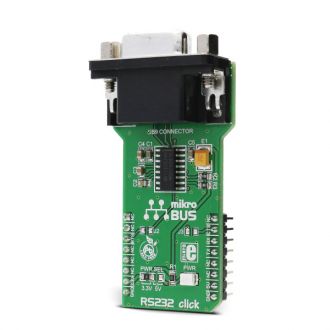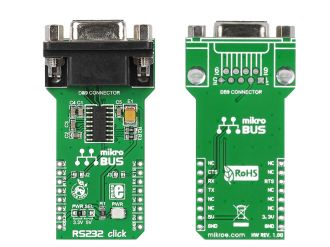
We strongly encourage users to use Package manager for sharing their code on Libstock website, because it boosts your efficiency and leaves the end user with no room for error. [more info]

Rating:
Author: MIKROE
Last Updated: 2018-06-14
Package Version: 1.0.0.1
mikroSDK Library: 1.0.0.0
Category: RS232
Downloaded: 9544 times
Followed by: 1 user
License: MIT license
Simple example which demonstrates working with RS232 click board in mikroBUS form factor. This code demonstrates how to use uart library routines. Upon receiving data via RS232, MCU immediately sends it back to the sender.
Do you want to subscribe in order to receive notifications regarding "RS232 click" changes.
Do you want to unsubscribe in order to stop receiving notifications regarding "RS232 click" changes.
Do you want to report abuse regarding "RS232 click".


Library Description
This library provides generic functions for working with the Click board™.
Key functions:
Examples Description
The application is composed of three sections:
void applicationTask()
{
char tmp;
uint8_t rdyFlag;
// RECEIVER - UART polling
rdyFlag = rs232_byteReady();
if (1 == rdyFlag)
{
tmp = rs232_readByte();
mikrobus_logWrite( &tmp, _LOG_BYTE );
}
// TRANSMITER - TX each 2 sec
/*
for (tmp = 0; tmp < 9; tmp++)
{
rs232_writeByte( MESSAGE_DATA[tmp] );
mikrobus_logWrite( "MESSAGE SENT", _LOG_LINE );
}
Delay_ms(2000);
*/
}
The full application code, and ready to use projects can be found on our Libstock page.
Other mikroE Libraries used in the example:
Additional notes and information
Depending on the development board you are using, you may need USB UART click, USB UART 2 click or another one RS232 click to connect to your PC, for development systems with no UART to USB interface available on the board. The terminal available in all MikroElektronika compilers, or any other terminal application of your choice, can be used to read the message.